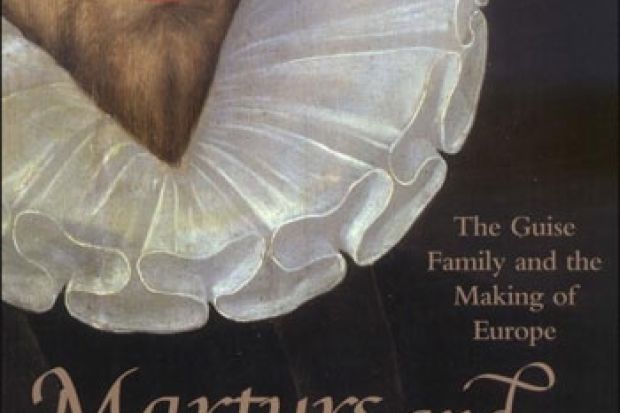This book began badly for me, with one of those imaginative reconstructions that some people enjoy; in this case of Francois de Lorraine, second Duke de Guise, setting out from his principal residence, the Chateau de Joinville, on the morning of 1 March 1562. We even get an account of what Francois was thinking about as he mounted his horse, although this comes with an authorial apology, since we really have little clue what that might have been.
The reason why one may be tempted to speculate was that later that day he and his retinue were to take part in the "massacre" of some 50 Protestants at the nearby town of Wassy. Whether Wassy - incidentally often spelt with a V - "reverberates across the centuries" to quite the extent that Stuart Carroll states I rather doubt, but in so far as it marked the start of the French Wars of Religion, it was undoubtedly an important event. These wars are what this book is really about, and the interest in this book lies in Carroll's reinterpretation of the part that members of the Guise family played in them. Far from being the mixture of Catholic bigots and self-aggrandising Machiavellians of many history books, they appear, in Carroll's account, in a much more nuanced, not to say attractive, light.
In particular, Francois, the second Duke, whom Carroll defends from the charge of planning the massacre at Wassy, and his brother Charles, Cardinal of Lorraine, emerge in their different ways - one the bluff but honourable soldier, the other the ecclesiastical statesman - as anxious to avoid the horrors of civil war, with a proviso that what the Cardinal sought especially was a form of religion acceptable to all. What was unacceptable to the Guise family was the policy of "toleration" that emerged de facto, by which Protestants were allowed to practise their faith in certain prescribed areas - a toleration that was unacceptable to most people in the 16th century, as it seemed a sure recipe for perpetual conflict.
Another important theme is the role of the great French families, including a category not to be found in England, the so-called "Princes", of which the Guise were among, although unlike the Bourbons, they were not related to the French Crown. It is arguable that conflict between these families could not have been prevented even if the French monarchy had been better served by its representatives, but the religious differences added considerable fuel to the fire.
So, too, did the blood feuds. Francois the second Duke was assassinated, perhaps with the involvement of the Protestant Gaspard de Coligny. Francois' son Henri, the third Duke, was directly involved in the assassination of Coligny, although his role in the Massacre of St Bartholomew, which started with the failed attempt on Coligny's life, is interestingly played down by Carroll. But Henri himself was to be assassinated, although in this case the King, Henry III, was largely responsible.
All is not good about this book. Much is stated rather than interpreted. There is an awful lot of history packed into only 300 pages of text, so that important topics, such as, for example, the role of the Queen Mother, Catherine de Medici, and the precise relationship between the Guise family and the Catholic League, get squeezed out - and this despite the fact that Carroll sees the emergence of the Catholic League as "a radical break with the past". The book is too thinly noted, and there are one or two copy-editing howlers including the appearance at one point of the House of Boubon-Vendome.
But for all that, this book comes as a welcome surprise for someone who, as a teacher, tried hard to avoid the topic, considering it far too complicated. Among other things it left me with some admiration for this talented and physically attractive family - a comparison with the Kennedys comes to mind. It has also encouraged me to think again about this most complex period of French history, and what more can one ask of a history book than that?
Martyrs and Murderers: The Guise Family and the Making of Europe
By Stuart Carroll
Oxford University Press
368pp,
£18.99
ISBN 9780199229079
Published 3 September 2009
